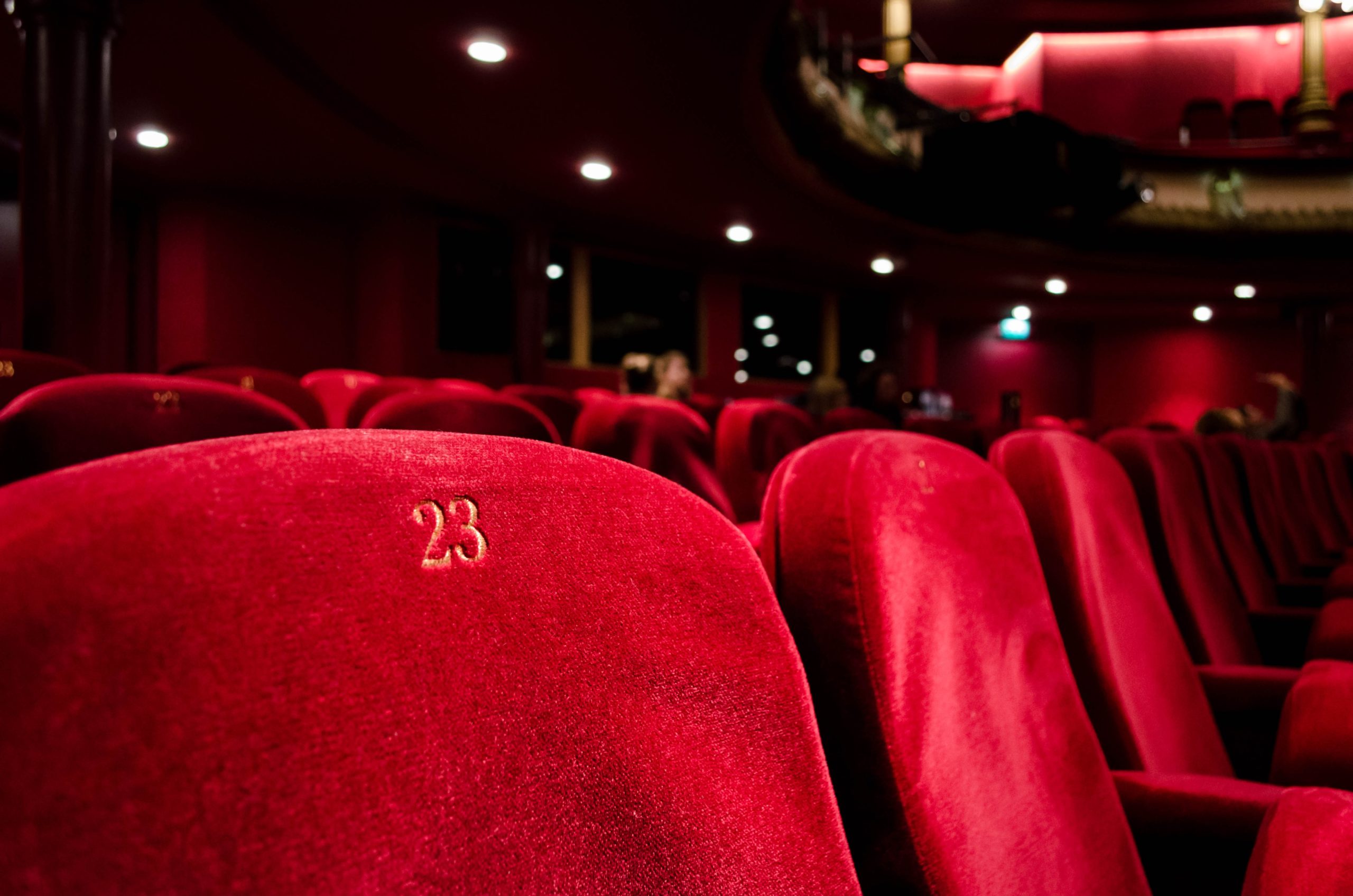
Pull Quotes
Pull Quotes on Criticism
We offer these reflections on the art of criticism by practitioners of the craft, to be augmented or edited from time to time.
"I believe in culture as a social justice and social change project, which requires not just looking at how ‘good’ a performance is, but at what it does in the world.”
“It is a terrible experience for a playwright to be forced by his conscience to praise critics for anything,’ O’Neill writes. “It isn’t done. It has never been done. There is something morbid and abnormal about it, something destructive to the noble tradition of what is current conduct for dramatists. In short, it gripes. Nevertheless, conscience drives me to reiterate that I think the Critics’ Circle Award is a damned fine idea.”

Eugene O’Neill
cited by Brooks Atkinson at the first NYDCC Awards, 1936
“Ultimately, our responsibility is not to the emotional well being of a specific artist. Our responsibility is to the reader, the art form and our work. In so doing, I believe, we pay the artist respect. Our honesty and standards are an argument that the art they make matters.”

Jason Zinoman
at ATCA/CATF, 2013
“Criticism, which by now should have evolved from a one-sided conversation … to a full-fledged back-and-forth between audience and critic, still drags its knuckles. Over in the online sports section of my particular newspaper, the threads are lively, angry, and impassioned. In the political and local sections, they’re horrific cesspools of blatant racism and sexism that continue for pages. But here on the performing arts page, save for the occasional response from someone associated with a production that received a negative review, they’re empty.”
“I should say secondly that the weird bifurcations of professional critics & amateurs, bloggers & newspaper(wo)men, is unhelpful & reductive. Critics are thinkers & writers, & one’s status as a “professional” certainly is not pursuant to the size of one’s salary. Egad, if such standards were applied to theatre, the number of “professional artists” would shrink dramatically, so to speak. A voice is a voice, whether a whisper or shout.”
"Sports metaphors, it turns out, work perfectly for theater, too, if you think of it as a grueling enterprise fraught with uncertainty, disappointment, rejection and constant reminders of your professional fragility."
"Critics in the past have seen themselves variously as torch-bearers, pallbearers and lighthouses shining over unmapped seas; I see myself predominantly as a lock. If the key, which is the work of art, fits snugly into my mechanism of bias and preference, I click and rejoice; if not, I am helpless, and can only offer the artist the address of a better locksmith."
"We need a diversity of experience, a diversity of taste, a diversity of race, gender, and class. Writers from all different kinds of lives need to be looking at the work and responding to it. The critics should mirror the American audiences that we’re playing to".
"Criticism as the adventures of a soul among masterpieces is an ideal. Criticism is most often bound to be the misadventures of a soul among gimcracks."

George Jean Nathan
The Theatre Book of the Year, 1946-47
"A critic, having some power to please, wound and/or influence people, would be a monster if he hadn’t also some self-doubt.”

Benedict Nightingale
in a Plays and Players series on theater criticism, July, 1982.
"Teaching this July at the National Critics Institute, for the first time … I was uncertain what to tell them. I can talk about clarity of expression and knowing a work’s historical sources; I am less good at showing them how to sum up their experience of a play in a single Tweet. They, game souls, are learning to adapt to this disheartening time, when only instant reaction is craved, and the full-time job that would empower the critic to think beyond the instant no longer exists. Will that change?”
”… my obstinate conviction that sitting in the dark for two hours watching people pretending to be someone else could do you good.”
“Only now looking back, I realize that growing up the kid of an artistic director was not normal. In my house, figuring out the best way to get a performance out of an actor was dinner conversation. Critics, from what I could tell as a kid, were pure, unadulterated evil.”
“The reviewer proclaims his ignorance, then blithely practices it. His chirpy tone is the voice not of a critic but of a ‘cricket’ … . The writer makes noise but not meaning. He’s full of energy but not information… . His article is not criticism; it’s bluffing,” says John Lahr (New Yorker), distinguishing a reviewer from a critic.
One terse response came from Charles McNulty (LA Times): 'I always thought [Lahr] was part of the problem. His reviews rarely provided in-depth analysis of a production… . I lost all confidence in Lahr’s critical integrity. I would read his reviews and see his dinner parties.'”
"To speak of impersonal criticism is as ridiculous as to speak of impersonal drama, music, painting, or reaction to alcoholic liquor. There is no such thing. There is only live criticism and dead criticism."

George Jean Nathan
The Theatre Book of the Year, 1946-47
"The chief fault with many critics is that they strive to divert to themselves the attention, if any, that their criticism should attract to itself."

George Jean Nathan
Art of the Night, 1928
"Control your emotions. Want the writer to be good. Want all writing to be good. If this writing is not good, regard the situation as regrettable, rather than cause for an end zone dance."
"You want to put on a show? Nothing wrong with that — everybody loves a review with personality. Everybody enjoys a clever turn of phrase or an apt put-down. But have some perspective. Again, it’s not about you, for crap’s sake."

J. Robert Lennon
Salon, Aug. 18, 2012, “How to Write a Bad Review”
"A more satisfying end is a line from David Hirson’s “La Bete,” coming to Broadway next season, by a character who is an actor: “I much prefer to any drooling fan/ A critic who will SLICE me into parts!/ God love the critics! Bless their picky hearts!”

“The Internet allows an avalanche of opinion for infinite sources, many of them rubbish, mean-spirited and lazy. But there’s some terrific writing out there too, and best of all there are so many new ways of reviewing.”
“You go wanting to fall in love with a production and that is so rare. I wanted to be smart and reasonable in my writing, to steer people towards the truth, and also had a lot of empathy for artists. I knew pretty soon formal criticism wasn’t for me.”
“Some critics don’t concern themselves with diversity or context, sticking to the subject before them. This is its own form of injustice as well as an abandonment of the critic’s role; to see exclusionary practices and not comment on them is to perpetuate them, but also, to pretend a show exists in a cultural vacuum does a disservice to the role of art.”
“…he falls on this succulent, puffed-up role as if it were a chocolate eclair… . This is not life imitating art. This is art going to bed with life and staying there for the rest of the afternoon.”

Anthony Lane
New Yorker review of “The French Minister.”
"Theater needs and deserves spokespeople who pay close attention to its interests and who give them voice in a time of … fundamental shifts and accelerating rates of change… . [In a digital age] it is time to move to a new concept, just as when Gutenberg unleashed a new capacity for human intellectual exchange."
"I’ve spent so much of my adult life writing criticism … that I have begun to detect a sort of hypotrophic enlargement of the part of my brain that looks at what the other parts are doing … . My concern here is that I have inadvertently allowed my inner critic to become the writer in residence of my very soul."
"Critics—good, professional critics—are experts… . Many of us are experts in particular kinds of theatre and performance… . But that doesn’t make me superior to the work about which I write. I don’t want to stand above the work. I want to see myself in conversation with what it means, how it feels, what other people thought about it, what it does in the world.
"One in ten shows may set you alight. But writing about the other nine can be just as exciting if, as occasionally happens, you experience the sensation of getting it right. I would rather read critics who are interesting than critics who are right, but the experience of both characteristics is like seeing a perfectly timed cover shot – sweet, sure, complete, unanswerable."

Michael Coveney
in a Plays and Players series on theater criticism, June, 1982.
"When we say that criticism is in crisis, what we really mean is that criticism as we’ve always known it is on its last legs… . Newspapers might survive without critics. The question is can critics survive without newspapers? … We need to start living in the future, even though we’re stuck in the present. We have to stop surviving and start serving. We have to stop talking about what criticism once was and ask what it could become. Anything else is just nostalgia".
“Theatre is the universal means of expression. It embraces all of the arts through which human minds seek to reach one another.”

Jerome Lawrence and Robert E. Lee
November, 1986 (as quoted on the website of the Lawrence and Lee Theatre Research Institute at The Ohio State University).
“Just now the Web is all about breadth, not depth: If I Google a show’s title to get a range of opinions on it, I can get links to several dozen superficial yeas or nays; criticism that tackles the work seriously, from knowledge, comes up rather less often. Bloggers and chatterati have, all too often, no strong sense of theater, no analytic powers, and no depth of experience to inform me; they’re the online equivalent of what newspapers used to call ‘boilerplate.”
“Jobbing in artists, short rehearsals, top-down administration, black history month diversity, chatting with a guest artist on the first day of rehearsal and again at the cast party, choosing the project or playwright the Times singled out last season—these are not the same as putting our methodology where our mouth is, believing that the way we work, the structures we create, the means to fulfilling our missions are as value laden, as important, as artistic, as what lands on our stages.”
“Although artists and critics are hardly natural allies, a vigorous public discourse about theater — and that necessarily means an assessment of its quality — is vital to the health of the art form that supports them both.”
"If criticism is the turning of the secondary (the critic’s judgment) into the primary, then the judgment should, in turn, be judged. Criticism, if it’s worth anything at all, is, first of all, self-criticism."

Richard Brody
“How to Be a Critic”
"Marx understood that criticism doesn’t mean delivering petty, ill-tempered Simon Cowell-like put-downs. It doesn’t necessarily mean heaping scorn. It means making fine distinctions. It means talking about ideas, aesthetics and morality as if these things matter (and they do). It’s at base an act of love. Our critical faculties are what make us human."
“The best advice I ever got, right before the publication of my first book, was from a publishing mentor who told me, ‘The only thing worse than a stupid bad review is a stupid good review.’ And he was right.”
"Since childhood I’ve been a loather of America’s feel-good, everyone-on-tiptoes culture. Give me some straight talk. Give me a little humor. Give me something real. Above all, give me an argument."
“With critics you sometimes get more than you deserve, you sometimes get less than you deserve. You never ever get what you deserve.”

Alan Ayckbourn
The Crafty Art of Playmaking
“NY is not the center of American theater; American theater is everywhere.”

@TerryTeachout





